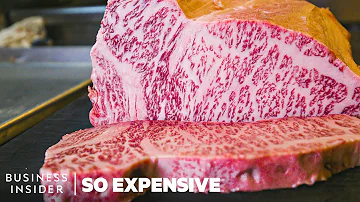What is the purpose of foundation primer?
Innehållsförteckning
- What is the purpose of foundation primer?
- What happens if you don't use primer before foundation?
- Should I use a foundation primer?
- Does foundation primer really work?
- Do you need primer if you don't wear foundation?
- Does primer protect your skin?
- Do makeup primers clog pores?
- Can you skip primer makeup?
- Where do you apply primer?
- What's the difference between primer and foundation?
- Do you really need primer under your foundation?
- What is a makeup primer and what does it do?
- What is faceface primer and why do you need it?
- Should you Prime your eyelids before or after foundation?

What is the purpose of foundation primer?
"Primer creates a smooth canvas for your makeup," says celebrity makeup artist Jamie Greenberg. "It also keeps your makeup in place, keeps it from moving, [and] can keep it matte or luminous," depending on the formula and your skin. Not only does it give you an even base, it also helps lock everything else in.
What happens if you don't use primer before foundation?
Using primer will make your makeup application more smoother and last for way longer. Though primer isn't necessary, it will definitely help your makeup from creasing or becoming cakey throughout the day. Nowadays, primers can even help with the appearance of certain skin concerns like fine lines, wrinkles, and pores.
Should I use a foundation primer?
If you have no problem with your foundation staying on all day, then a primer isn't totally necessary. But if you feel like you want a more air brushed look to your skin and your foundation formula isn't bringing it, Debris suggests enlisting the help of a primer to do just that.
Does foundation primer really work?
Not only does makeup primer create a silky-smooth, poreless canvas for your makeup to adhere to, but it also helps your face and eye makeup stay on all day without slipping, fading, or creasing. Basically, primer is your bestie, and you're ghosting it (TBH, shame on you, wow).
Do you need primer if you don't wear foundation?
In the absence of foundation, no primer is necessary. However, you still need to apply both sunscreen and moisturizer (in that order) even if you're not wearing foundation (and remember to reapply sunscreen every 2–3 hours throughout the day).
Does primer protect your skin?
“A face primer acts as a barrier between makeup and your skin,” explains Figueroa. It works like double-sided tape, locking in your moisturizer and helping your foundation adhere better for a smooth and polished finish while also minimizing the look of pores in the process, she says. How do you apply face primer?
Do makeup primers clog pores?
Primers are a necessary evil in the standard beauty routine. They're necessary because they lock in your base, help with oil control, and provide a smooth, crease-free finish. But sometimes, they can clog your pores — which leads to breakouts, especially when you have sensitive skin.
Can you skip primer makeup?
“If you are in a studio with air-conditioning or are going out for just two or three hours, and you have really good skin, you can even skip a primer if it feels too heavy. ... If you have set your makeup well with a powder and used the right primer, it's more than enough to make the base last,” says Soni.
Where do you apply primer?
Apply the primer to the center of your face and use gentle, circular motions to blend it outwards. The motion should be similar to the one you use when applying your moisturizer. Work the product evenly into your skin so you get smooth, even coverage.
What's the difference between primer and foundation?
While a primer is a product used on the face before any other product is applied and is used to help makeup last longer, reduce transfers, ensure an even application and produce a smoother surface, foundation is a liquid, stick, cream or mousse that closely resembles skin color, and is applied above the primer.
Do you really need primer under your foundation?
- Any fading, bleeding or blotchy behavior that can occur throughout the day can usually be prevented with the use of a little bit of primer under your foundation. Better yet, many primers now are also infused with SPF, so they help keep your skin protected from UV rays while lending radiance.
What is a makeup primer and what does it do?
- Put simply, primer is exactly what its name implies: It's a preparatory product that's applied after your skin care to create an ideal canvas to hold onto whatever makeup comes afterward — like foundation, tinted moisturizer, or concealer.
What is faceface primer and why do you need it?
- Face Primer is the beginning of any great makeup look, whether you’re rocking a full beat or just a few dabs of concealer. And while a great skincare regimen can work wonders for making sure your makeup wears flawlessly throughout the day, primer is the real key to getting your makeup to perform the way it should.
Should you Prime your eyelids before or after foundation?
- Massaging a primer into your skin prior to foundation (with clean hands, of course!) is a great way to apply it, but it isn't the only way. Consider mixing your primer into your foundation and applying them simultaneously. This will slightly sheer out the coverage but keep it long lasting. 4. Forgetting to Prime Your Eyelids














